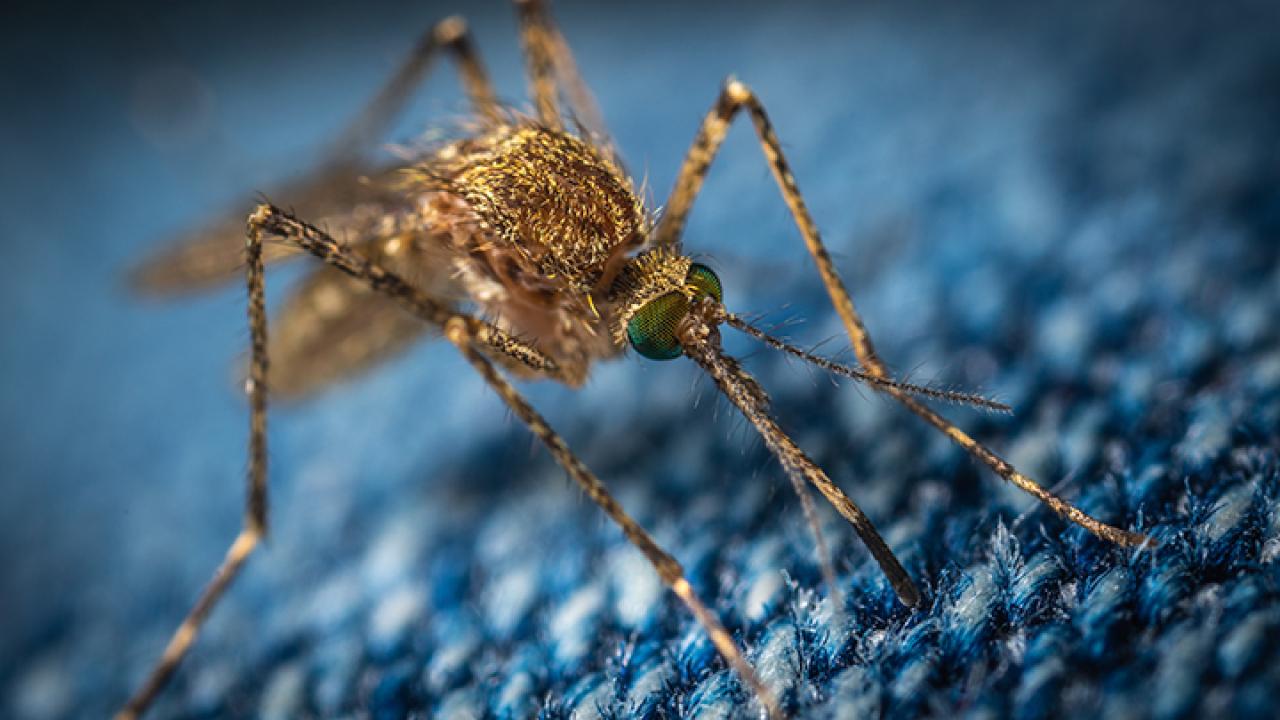
West Nile Virus
West Nile Virus
How we can help
Call 530-752-1393 to schedule an appointment with the Internal Medicine Service.
Among wild birds, Corvids such as crows, scrub jays and magpies are particularly susceptible. Indeed, WNV has had a significant impact on these and other bird species. Pet birds are probably at greater risk to WNV than dogs or cats. Owners of pet birds should refer to the CDC website table of bird deaths from WNV between 1999 and 2007. Pet species are usually classified as exotic in this table. (http://www.cdc.gov/ncidod/dvbid/westnile/)
Can small companion animals such as birds, cats and dogs contract West Nile virus?
Dogs and cats are susceptible to infection, but considerably more resistant to disease than horses, humans, and some species of birds. Very young and very old cats and dogs, and animals that are immunocompromised for some other reason, are the most likely to show signs of illness. Signs of a possible infection include weakness, fever and muscle spasms, although blood tests are needed to confirm a diagnosis. Treatment is consistent with standard veterinary practices for viral infections, and recovery is likely. If you suspect that your animal may be infected, seek the advice of your regular veterinarian.
How likely is it that my cat or dog will catch West Nile virus?
It is very unlikely for healthy dogs or cats to become ill with this virus. Pet owners should do the same things that they should do to protect themselves and family members: eliminate mosquito habitat and avoid mosquito exposure. Private veterinarians may also be consulted for recommendations on safe, effective mosquito repellents that may be used on pets. DEET-containing products are not approved for pets and should not be used. It is very important not to use human insect repellent on your animal as it may cause poisoning.
Can I contract the virus from my infected animal?
West Nile virus infection has been confirmed in some domestic animals, including pet birds, dogs and cats. However, there is no evidence that a person can get the virus from handling any animal, including live or dead infected birds. Furthermore, there is no evidence that WNV can be transmitted to humans through consuming infected birds or animals.
There is no evidence that a person can get WNV from handling live or dead infected birds. However, one should always use caution when handling dead birds. Persons should avoid bare-handed contact when handling any dead animals, and use gloves or double plastic bags to place the bird carcass in a garbage bag or contact their local health department for guidance.
Can the virus be transmitted from animal to animal?
It is possible that dogs and cats could become infected by eating dead infected animals such as birds, but this is undocumented. Veterinarians should take normal infection control precautions when caring for an animal suspected to have this or any viral infection.
How common is West Nile virus in California?
For information on WNV in California please visit the California Vectorbourne Disease Surveillance Center's website http://westnile.ca.gov/. This site contains the most current information on the spread of WNV in California.
What can I do to protect myself as well as my companion animals?
West Nile virus is transmitted by infectious mosquitoes. Dogs or cats could be exposed to the virus in the same way humans become infected. To protect yourself as well as your animals, these precautions are recommended:
- Make sure that doors and windows have tight-fitting screens. Repair or replace all screens that have tears or holes.
- Eliminate mosquito breeding sites from around your home (standing water).
- Don't go outside in the early evening or at dawn.
- If you are outdoors during those times, wear long-sleeved shirts and long pants, but bear in mind that mosquitoes can bite through thin cloth.
- Consider using insect repellent (the CDC recommends using one with permethrin or DEET) on your skin and clothing, particularly if you live in a wet, low-lying area where mosquitoes might breed. But use insect sprays sparingly and cautiously. (This means never spraying repellents on children under the age of three or on the hands of children who might put them in their mouths.) DEET-containing products are not approved for pets and should not be used. It is very important not to use human insect repellent on your animal as it may cause poisoning.
- Dispose of any unused outside water containers and drill holes in the bottom of containers that are left outdoors. Turn over plastic wading pools or wheelbarrows when not in use, and do not allow water to stagnate in birdbaths.
- Clean clogged roof gutters regularly.
- Ventilate ornamental pools or stock them with fish.
- Clean and chlorinate swimming pools that are not in use.
- If you have livestock, thoroughly clean their troughs every month.
- Don't rely on ultrasonic mosquito-repelling machines or vitamin B to ward off bites.
*This article may not be reproduced without the written consent of the UC Davis School of Veterinary Medicine.
